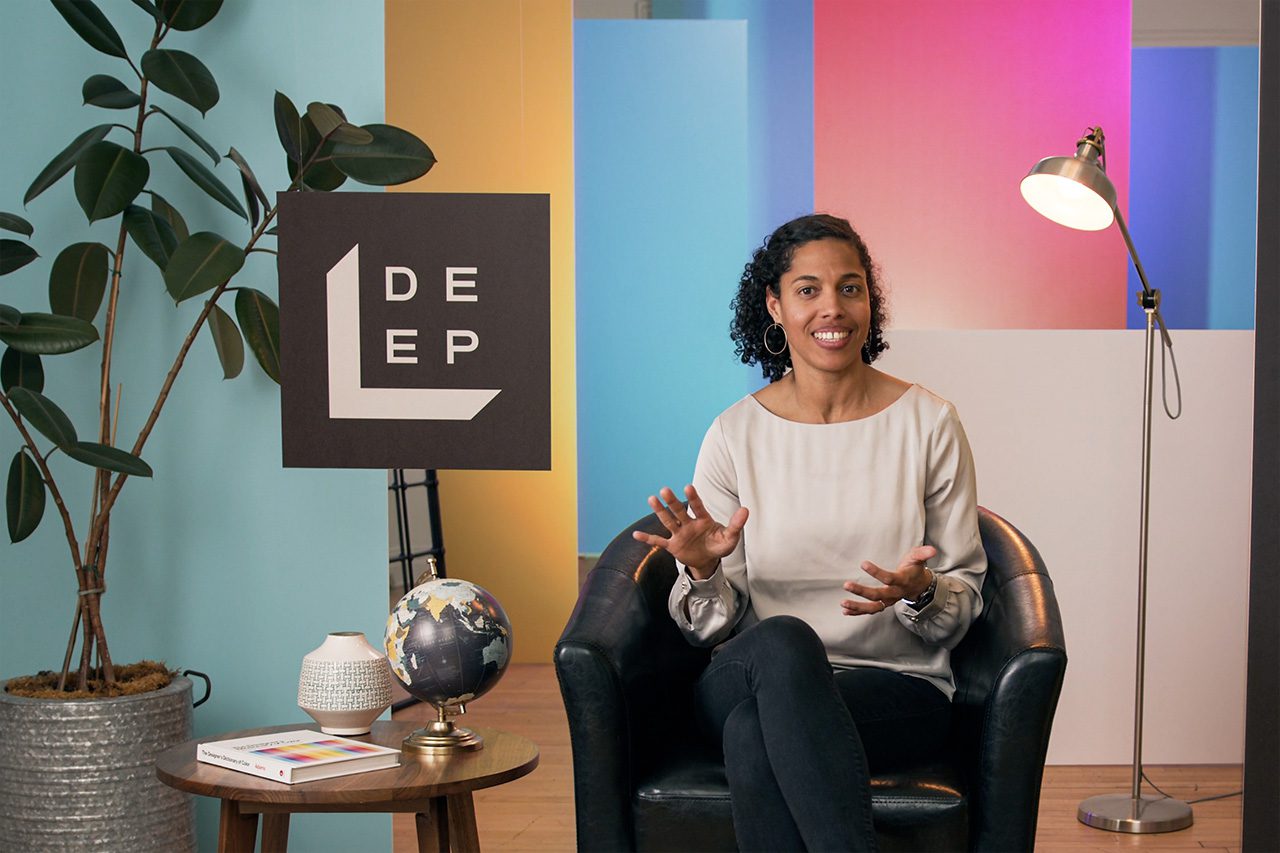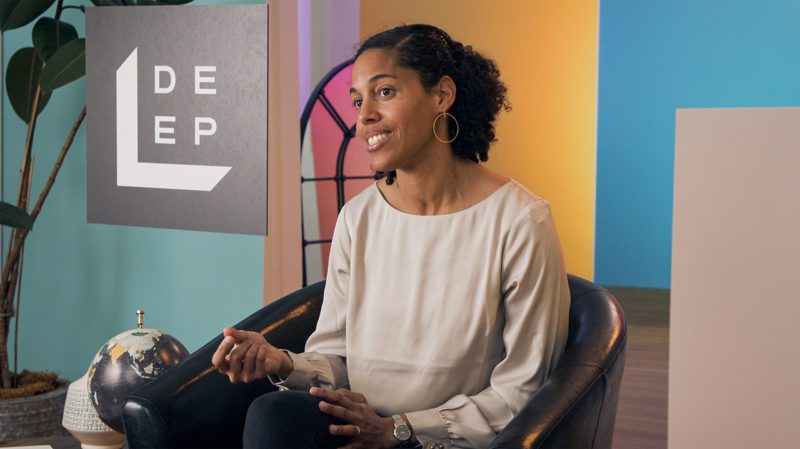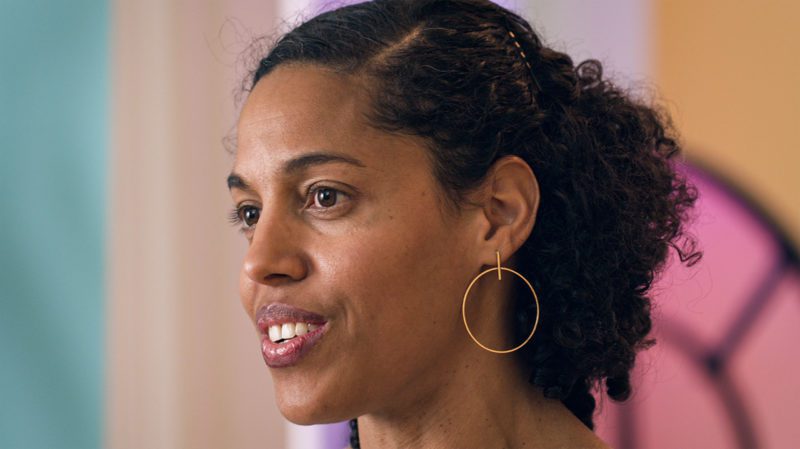Unplastifying the Future
Tati Besada’s mission to restore our oceans
A conversation with investor and entrepreneur Kimmy Paluch

Photo Courtesy of Sorenson Impact Center
Project DEEP (Developing Equitable Economies Program) aims to disrupt the status quo in entrepreneurship and investing and unlock equitable wealth creation for underrepresented entrepreneurs and investors. In this Q&A, Project DEEP course instructor, entrepreneur, and venture capital investor Kimmy Paluch talks about reducing barriers, developing new funding models, and addressing systemic disparities.
Kimmy Paluch is a venture capitalist, computer scientist, and experienced entrepreneur leading the way toward jumpstarting growth for startups led by founders overlooked due to gender, race, geography, and background. In 2017, she co-founded Beta Boom, which invests in software startups tackling problems that face women and multicultural consumers, which historically have been underfunded in the landscape.
Tired of the homogeneity of people and innovations in the tech industry, Kimmy and Beta Boom co-founder Sergio Paluch saw an opportunity to disrupt the venture capital industry, which she says “seemed to primarily serve a tiny, elite slice of the American public.” Beta Boom seeks to unlock the potential of founders that other investors overlook through a better, more progressive investment model. Using an investment assessment that focuses on lived experiences, Beta Boom invests in founders with outstanding consumer insight, grit, and hustle, working alongside them to build the structures, strategies, resources, and teams that will ensure long-term success. Eighty-six percent of Beta Boom’s portfolio is woman-founded and led, and their latest fund portfolio is composed entirely of companies run by a woman or person of color.
Bringing both her entrepreneurial and investing experience to bear, Kimmy teaches a course in the Sorenson Impact Center’s Project DEEP program: Demystifying Entrepreneurship. In the course, she covers how to create a culture of experimentation, build a business model and team, refine your product and marketing, and strengthen your product-market fit. In this conversation, Kimmy shares insights around breaking down barriers to entrepreneurship and investment, and what she hopes to accomplish through the Project DEEP program.

Photo Courtesy of Sorenson Impact Center
In terms of changing the system and bringing more diversity into the entrepreneurial and investment ecosystem, what is the top change you would like to see?
Unfortunately, there is no silver bullet to address systemic issues that have been created over hundreds of years. While it is absolutely true that underestimated entrepreneurs are over-mentored and underfunded, our philosophy is that the check is not enough. Where we’ve seen transformative results, and research has shown correlation, is when financial capital is combined with social and human capital. So, I’d like to see more funding options that leverage these models more intensively.
At Beta Boom, our realization early on was that innovation is required on the investment side to break away from the current pattern-matching that has led to so little capital moving in these directions. For this reason, we are always evaluating ways that we can work better for this group: from working more hands-on and intensively with teams to using an open application process to enable greater access.
As an investor, what is the top challenge you see underestimated entrepreneurs facing right now?
The greatest obstacles are access and transparency. The biggest gaps for entrepreneurs continue to be at the earliest stages, so we need to see more non-dilutive capital made available to incredible entrepreneurs that may not have the networks to finance their initial rounds of capital. With current market conditions, we’ve been talking about the nearly $300B in dry powder that is currently available for deployment. The problem is that many founders still don’t have pathways to get a meeting or even be considered. Additionally, knowing which funds or people to approach can be difficult.
The biggest gaps for entrepreneurs continue to be at the earliest stages, so we need to see more non-dilutive capital made available to incredible entrepreneurs.
What would you like your fellow investors to do differently?
I’d like for fellow investors to help in creating greater access, share their successes so that more can follow, and to examine ways that we can all move the ball forward with conviction. Additionally, more representation on the investor side is a must. It’s an undeniable fact that having more diversity on the investment side can yield increased investments flowing to diverse entrepreneurs. This can be amplified further if we also examine the selection criteria and process we’re using that may be screening these diverse opportunities out.
As an entrepreneur yourself, what was the hardest part about launching your business?
What advice do you give people who are struggling to get their business off the ground? The hardest part is building early traction with limited resources, both in terms of establishing a customer base and building a team when you don’t have the resources for monetary compensation. The best advice I have is:

Photo Courtesy of Sorenson Impact Center
Your Project DEEP course is called Demystifying Entrepreneurship. What are you hoping this course will offer?
I’m hoping that the course will inspire many more founders who don’t usually see themselves copiously represented in the media, tech, or public markets. I hope that it will inspire them to either start something or keep going if they are already on the journey. Beyond the belief, I also hope some of the tactics and practical tools we shared are helpful in overcoming the early hurdles of development.
What has been one of your favorite moments so far from your experience with Project DEEP?
My favorite moments were speaking with the founders! It is always inspiring to hear first-hand how entrepreneurs build their enterprises, particularly in the face of obstacles. The thing that always strikes me is that it is never a linear path or the same path. I was moved by Tenisha overcoming personal trials and a first stagnated business to create her new flourishing business in the esthetician space. I smiled at the story of The Girls Co. and how they created something very novel from an experience that had singled them out as being the only women in the room.
Related Content
Comments
Deep Dives

Featuring
Clarisse Awamengwi
IE Correspondent
July 17 - 12:00 PM EST

Featuring
Russell McLeod
July 24 - 12:00 PM EST
RECENT
Editor's Picks
Webinars
News & Events
Subscribe to our newsletter to receive updates about new Magazine content and upcoming webinars, deep dives, and events.
Become a Premium Member to access the full library of webinars and deep dives, exclusive membership portal, member directory, message board, and curated live chats.
At Impact Entrepreneur, we champion fearless, independent journalism and education, spotlighting the inspiring changemakers building the Impact Economy. Diversity, equity, sustainability, and democracy face unprecedented threats from misinformation, powerful interests, and systemic inequities.
We believe a sustainable and equitable future is possible—but we can't achieve it without your help. Our independent voice depends entirely on support from changemakers like you.
Please step up today. Your donation—no matter the size—ensures we continue delivering impactful journalism and education that push boundaries and hold power accountable.
Join us in protecting what truly matters. It only takes a minute to make a real difference.
0 Comments